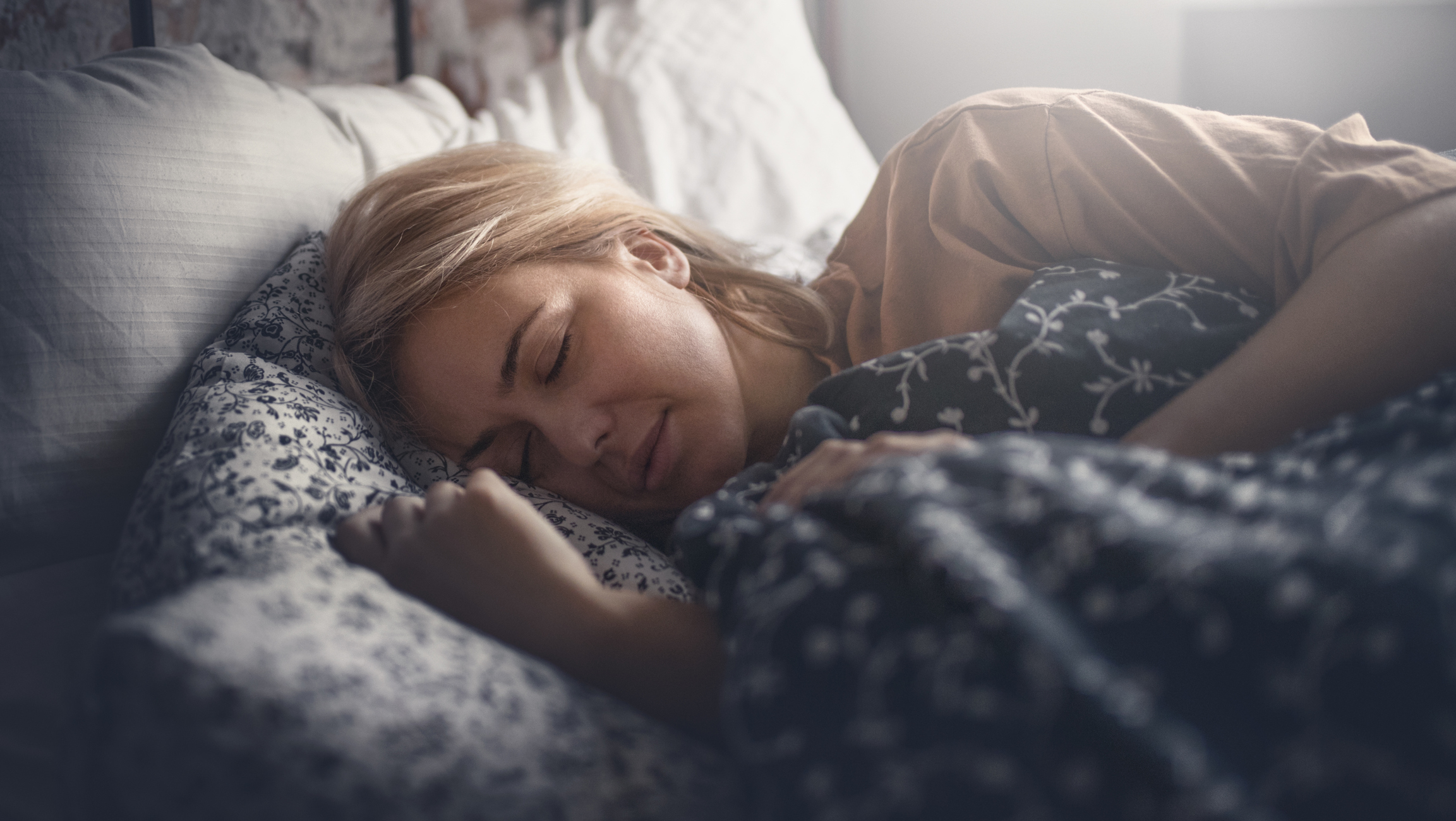Get Easy Health Digest™ in your inbox and don’t miss a thing when you subscribe today. Plus, get the free bonus report, Mother Nature’s Tips, Tricks and Remedies for Cholesterol, Blood Pressure & Blood Sugar as my way of saying welcome to the community!
‘Sedating’ music helps seniors sleep without the risky pills

All of us have those nights when physical discomfort or a racing mind can make it difficult for us to sleep well. But when it happens night after night, it can be a real nightmare.
Up to 70 percent of older adults have sleep problems, and more than 40 percent have insomnia (waking up often during the night or too early in the morning).
For years now, I’ve been listening to soft music to help me drift off to sleep. It gives me something soothing to listen to instead of the “noise” of the day that’s often still going on inside my head when it hits the pillow.
As it turns out, there’s good science behind the benefits of listening to soothing music before bedtime — especially for people in my age group (over age 60). That’s a good thing too, because the alternatives carry unique risks for us…
An hour of music before bed helps seniors sleep
Researchers from the National Cheng Kung University Hospital in Taiwan have found that listening to music 30 to 60 minutes before bedtime improved sleep quality for seniors.
Their study pulled together the results of randomized control sleep studies that analyzed the effects of music on sleep quality in people over age 60. The studies were taken from five different databases.
Each study was reviewed by two independent investigators.
This analysis showed that adults who listen to music before bed enjoy significantly better sleep than those who nod off in silence.
But not just any type of music …
‘Sedative music’ is your best choice
Listening to music with a strong beat is not the best choice if you’re trying to fall asleep.
In this study, those who listened to “sedative music” — music with a slow tempo of between 60 and 80 beats per minute, a soft volume, and a smooth melody — showed the most improvement in sleep quality.
“Based on psychological theory, listening to sedative music can improve sleep by modulating sympathetic nervous system activity and the release of cortisol, thereby lowering levels of anxiety and stress responses,” says study author Dr. Yen-Chi Chen.
Calming music may slow heart rate and breathing as well as lower blood pressure, the study authors theorized. This, in turn, may help reduce the stress and anxiety that cause poor or interrupted sleep.
“Music therapy might be the first line of therapy to recommend in older adults with sleep disturbances, which would reduce the need for dependence on sedatives and sleeping medication.”
Music instead of sleeping pills
And that’s great news because sleeping pills come with unique risks for seniors….
The sleep benefits available from benzodiazepines, commonly known by names like Valium and Xanax, can be far outweighed by the side effects and risks:
- Physical and psychological dependence. You can become addicted to benzodiazepines. Trying to stop taking them, even under a doctor’s supervision (the only way it should be done) can result in severe anxiety and “rebound” insomnia that’s worse than the original problem.
- Drug tolerance. Nightly use of a benzodiazepine can cause brain receptors to become less and less sensitive to their effects, eventually making them ineffective (but leaving the user with the side effects and need for withdrawing from the medication slowly).
- Slow thinking. Many people experience “brain fog” and unclear thinking when taking benzodiazepines, sometimes worse than the insomnia symptom they’re meant to treat.
- Increased fall risk. If you’re groggy but need to make a bathroom trip during the night, it could spell danger.
Older adults are more sensitive to the side effects of “benzos” and the drugs stay in their systems longer, thanks to a slower metabolism.
So instead, if you want to give this “music therapy” a try, it’s best to do it consistently for at least four weeks. According to the study, those who listened to music at bedtime for at least that long showed the best improvement in sleep quality.
And, if you’re wondering where to find the right music, here’s a playlist to get you started: 10 Songs to Serenade You to Sleep.
And if you want to know whether your favorite music qualifies as “sedative,” or will actually keep you awake, there are apps for that!
Search things like “BPM Detector” and you’ll find them. Just let the app listen to your music, and you’ll know whether it’s good for bedtime or not.
Editor’s note: Did you know that when you take your body from acid to alkaline you can boost your energy, lose weight, soothe digestion, avoid illness and achieve wellness? Click here to discover The Alkaline Secret to Ultimate Vitality and revive your life today!
Sources:
Lullabies help old folks sleep better too: Music at bedtime improves sleep quality for people over 60 — Study Finds
Effect of music therapy on improving sleep quality in older adults: A systematic review and meta-analysis — Journal of the American Geriatrics Society
Calming music at bedtime improves elders’ sleep quality in study — McKnight’s Long-Term Care News
Over 65? Think twice about sleeping pills — Easy Health Options













